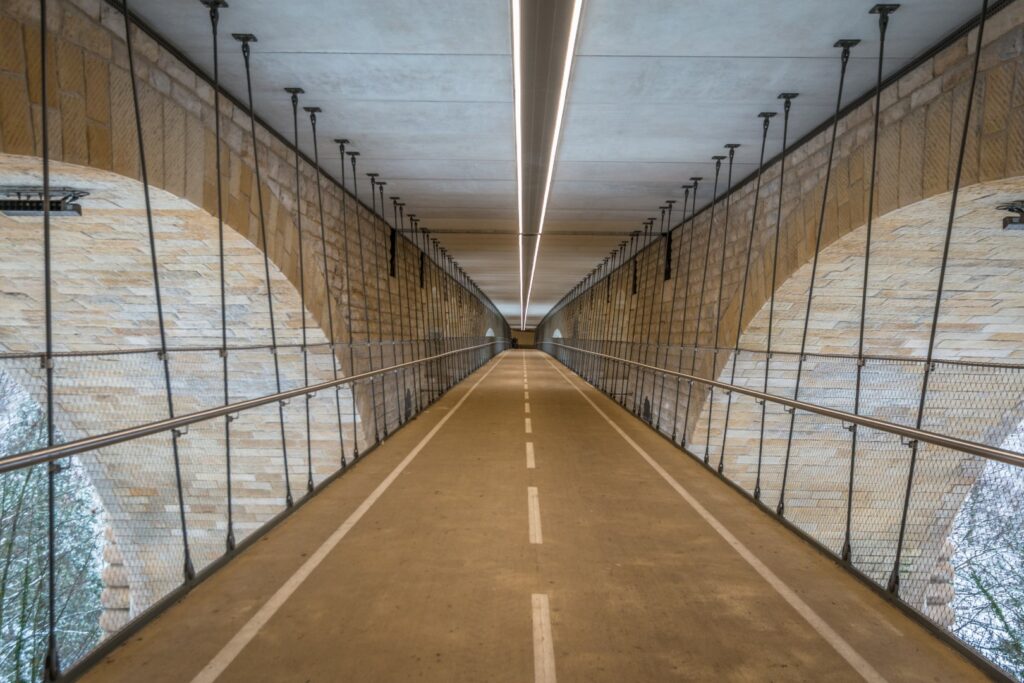Luxembourg: Living through the pandemic in the ‘laboratory of mobility’
Luxembourg: Living through the pandemic in the ‘laboratory of mobility’
The dynamic character of Luxembourgish society and its attempt to be a ‘laboratory of mobility’ made it difficult to impose restrictions during the pandemic.
This article is part of our series on the social impact of COVID-19.
Unique population profile
The population profile of Luxembourg put it in a challenging situation during the COVID-19 pandemic. With slightly over 634,000 residents and about 197,000 cross-border commuters, Luxembourg is one of the most densely populated countries in Europe.[1] On top of that, Luxembourg has the highest population turnover,[2] the second highest net migration in Europe,[3] and nearly half of the country’s residents do not have a Luxembourgish nationality.[4]
Compared to other countries, Luxembourg placed middle in terms of public health
The dynamic character of the Luxembourgish society and its attempt to be a ‘laboratory of mobility’[5] made it difficult to impose any significant restrictions during the pandemic. Two full lockdowns were required to keep the population from moving around.[6] At the same time, the recommendation to work from home was much easier to implement in a country where services constitute the predominant sector of GDP.[7] That might be one of the reasons why Luxembourg is positioned in the middle in terms of infections per capita,[8] and a little better in terms of the excess deaths globally.[9]
In terms of trust and economy, it was among the top
While from a public health perspective Luxembourg achieved neither spectacular success, nor significant failure, it can boast one of the lowest rates in Europe of people reporting difficulties in making ends meet and among the highest trusts in the national government.[10] While the former might not be a surprise in a country with the highest GDP per capita in Europe,[11] the latter is quite a success.
The tensions run high around restrictions
In other social statistics, however, Luxembourg does not shine so bright. One of the most significant challenges encountered by the state during the pandemic were the anti-restriction and anti-vaccination protesters. With about a quarter of the population either very or rather unlikely to take the vaccine, Luxembourg did not top vaccine hesitancy charts in Europe.[12] However, it experienced violent protests against COVID-related restrictions and vaccine mandates.[13] At some point protesters began to target individual politicians,[14] [15] and chanted death threats towards the prime minister.[16] The tensions ran high during the parliamentary debates too. When a man petitioning against the CovidCheck system in public buildings compared the system to Nazi regime measures, the Luxembourgish lawmakers left the building.[17]
Between the state and religious communities
Although most religious communities agreed that restrictions were necessary,[18] they also had some words of critique towards their form. For example, the Archbishop of Luxembourg, Cardinal Jean-Claude Hollerich, criticised the government for being too blunt in imposing restrictions. Hollerich argued that churches were some of the safest places during the pandemic, both physically and mentally, provided that all safety measures were applied, as shown by scientific studies. Hollerich criticised the one-size-for-all approach of many European governments which closed all temples regardless of the type of worship in them.[19] In his view, the closure of the churches accelerated the secularisation of Europe by 10 years.[20]
But Hollerich also noted that the pandemic paved the way for interfaith collaboration. As he pointed out, when masses were banned in Luxembourg, the Catholic Church was first to introduce a sanitary plan for religious gatherings. Hollerich stated that Muslim and Jewish communities expressed gratitude for taking the lead, and used the plan as the basis for their own adaptations.[21]
Society in constant flux
It is difficult to draw conclusions about the social change in Luxembourg. As a ‘laboratory of mobility’, its society is in a constant flux. In some respects, its government maintained high trust among the residents. It also maintained a high degree of personal freedom, not imposing vaccination mandates in the end. Nonetheless, the protests against the restrictions were more severe and violent than expected, turning the public debate into the direction that warranted an immediate end of conversation. These (for now) sporadic incidents may constitute a foundation for increased polarisation in the future.
You can use the free EARS Dashboard to learn more about trends and developments on the topic of religion and society. Hundreds of article summaries from all over the world were added in the past month!
Sources
[1] An open and cosmopolitan society – Luxembourg (public.lu)
[2] Population turnover in the EU Member States – Products Eurostat News – Eurostat (europa.eu)
[3] Migration and migrant population statistics – Statistics Explained (europa.eu)
[4] An open and cosmopolitan society – Luxembourg (public.lu)
[5] Free transport in Luxembourg, but what’s the cost? – BBC News
[6] Luxembourg: the latest coronavirus counts, charts and maps (reuters.com)
[8] Luxembourg: the latest coronavirus counts, charts and maps (reuters.com)
[9] Tracking covid-19 excess deaths across countries | The Economist
[10] Living, working and COVID-19 (Update April 2021): Mental health and trust decline across EU as pandemic enters another year (europa.eu)
[11] GDP per capita, consumption per capita and price level indices – Statistics Explained (europa.eu)
[12] Living, working and COVID-19 (Update April 2021): Mental health and trust decline across EU as pandemic enters another year (europa.eu)
[13] Property damaged in heated Luxembourg Covid protests (luxtimes.lu)
[14] Man charged with threats mailed to top Luxembourg leaders (luxtimes.lu)
[15] RTL Today – Anti-Covid demonstrations: Police evaluating threats as protesters target politicians’ homes
[16] RTL Today – Luxembourg City: Protestors chant Bettel death threats in Covid protest on Saturday
[17] Lawmakers walk out after Holocaust comment in Covid debate (luxtimes.lu)
[18] Vivre sa religion au temps du covid (wort.lu)
[19] Kard. Jean-Claude Hollerich: Boję się fanatycznego katolicyzmu – rp.pl
[20] Cardinal: Pandemic may have accelerated secularization of Europe by 10 years | Catholic News Agency
[21] Cardinal: Pandemic may have accelerated secularization of Europe by 10 years | Catholic News Agency






